Protests and possibilities: West Asia and India
This paper analyses West Asian politics in the wake of the Arab uprisings, and examines the nature and implications of India's policies towards the countries
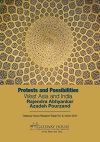 Courtesy: Gateway House
Courtesy: Gateway House
This paper analyses West Asian politics in the wake of the Arab uprisings, and examines the nature and implications of India's policies towards the countries
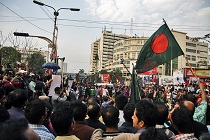 Courtesy: Rajiv Ashrafi/Flickr
Courtesy: Rajiv Ashrafi/Flickr
The youth of Bangladesh, a generation born well after 1971, are now demanding long overdue accountability, secularism, and neighbourly friendship. If the movement is successful, Bangladesh will have shown all South Asian countries that to transcend the past it is necessary to be transparent and secular.
The military withdrawal of U.S. troops from Afghanistan in 2014 is likely impact both South and Central Asia. Gateway House interviews former U.S. envoy to Afghanistan Karl Eikenberry, who also served as a military officer in Afghanistan, to discuss the challenges and opportunities in post-2014 Afghanistan.
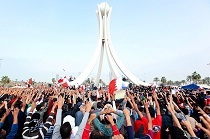 Courtesy:
Courtesy:
The Arab uprisings show no sign of closure, and have become amorphous. While New Delhi has so far been immunised from the political and religious dimensions of the uprisings, the rise of political Islam, Islamic governance, and continuing instability will impact India.
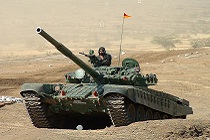 Courtesy: Chanakyathegreat/WikimediaCommons
Courtesy: Chanakyathegreat/WikimediaCommons
After each terror attack in india, there are strident demands for military action against Pakistan. ‘Surgical’ strikes and limited war in a bilateral nuclear age are not really options. What is needed is more decisive action on non-military fronts
In the backdrop of the European Union’s (EU) economic crises, the international community’s focus has shifted towards Asia. Gateway House interviews renowned historian and scholar Timothy Garton Ash on the lessons Asia can learn from Europe, Britian’s role in the EU and political morality.
 Courtesy:
Courtesy:
India’s relations with Islamic nations, many of which are members of the Organisation of Islamic Cooperation (OIC), have become even more prolific over the last decade. While India does not visualise becoming a member of a religious international body, many reasons militate against our formally joining the OIC.
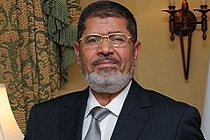 Courtesy: Cyfraw/WikimediaCommons
Courtesy: Cyfraw/WikimediaCommons
Despite heavy opposition from several factions, Egyptian President Mohamed Morsi’s propositions for altering the constitution have been approved. Although the alterations have democratic elements, the liberals and secularists bear responsibility in taking forward Egypt’s journey to complete democracy.
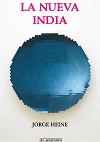 Courtesy: El Mercurio Aguilar
Courtesy: El Mercurio Aguilar
Ambassador Jorge Heine's latest book, La Nueva India, gives a comprehensive overview of India after the economic liberalisation of 1991, and explores how Latin America can learn from India's experiences.
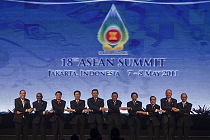 Courtesy: Abhisit Vejjajiva/WikimediaCommons
Courtesy: Abhisit Vejjajiva/WikimediaCommons
At present, the ASEAN is at a critical phase in its dealings with China – the regional hegemon with growing heft. Why do ASEAN nations need to collaborate and find innovative ways to deal with its giant neighbour.